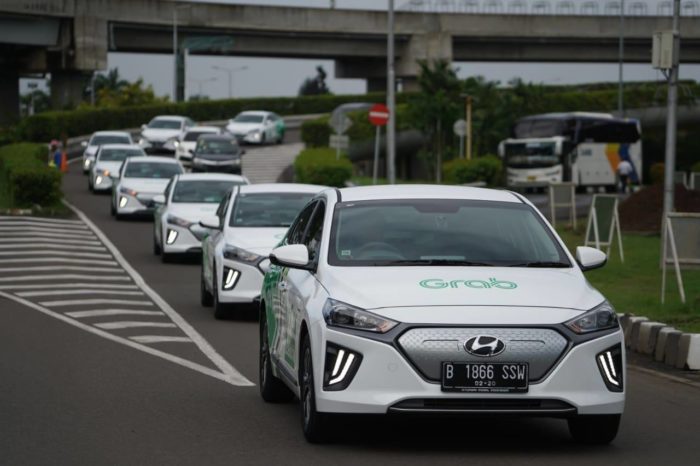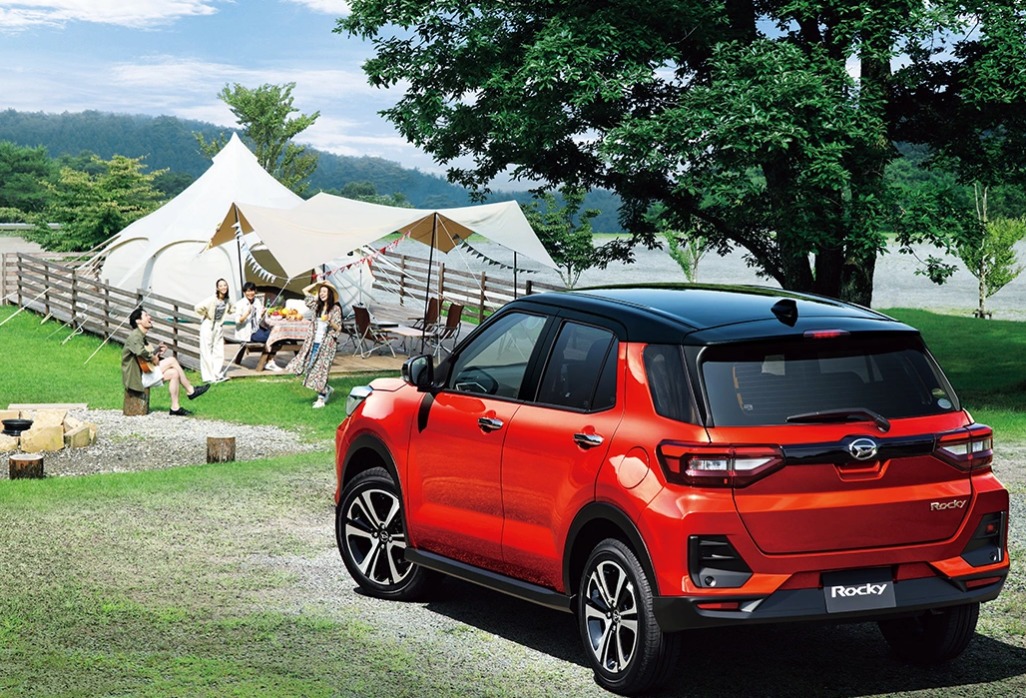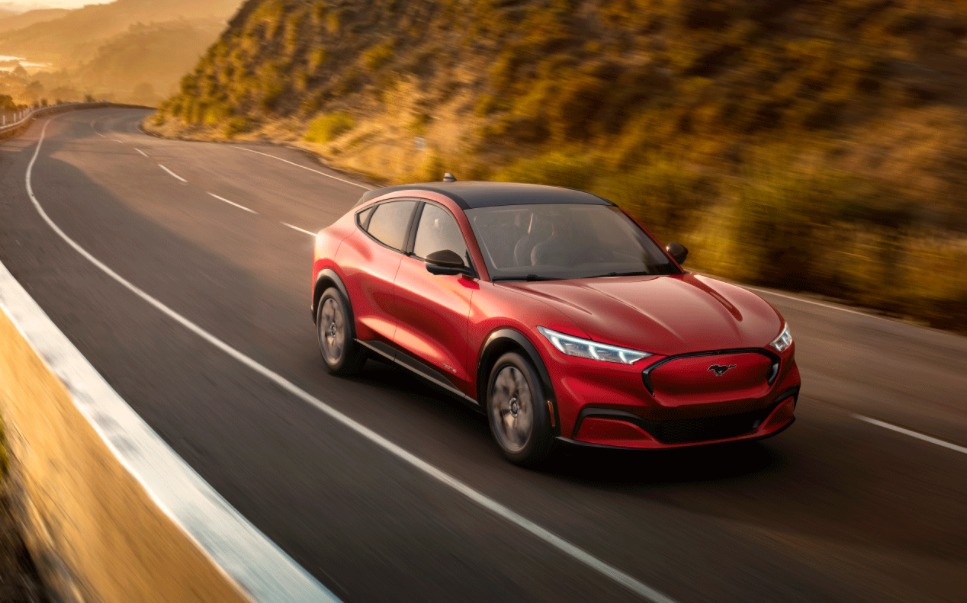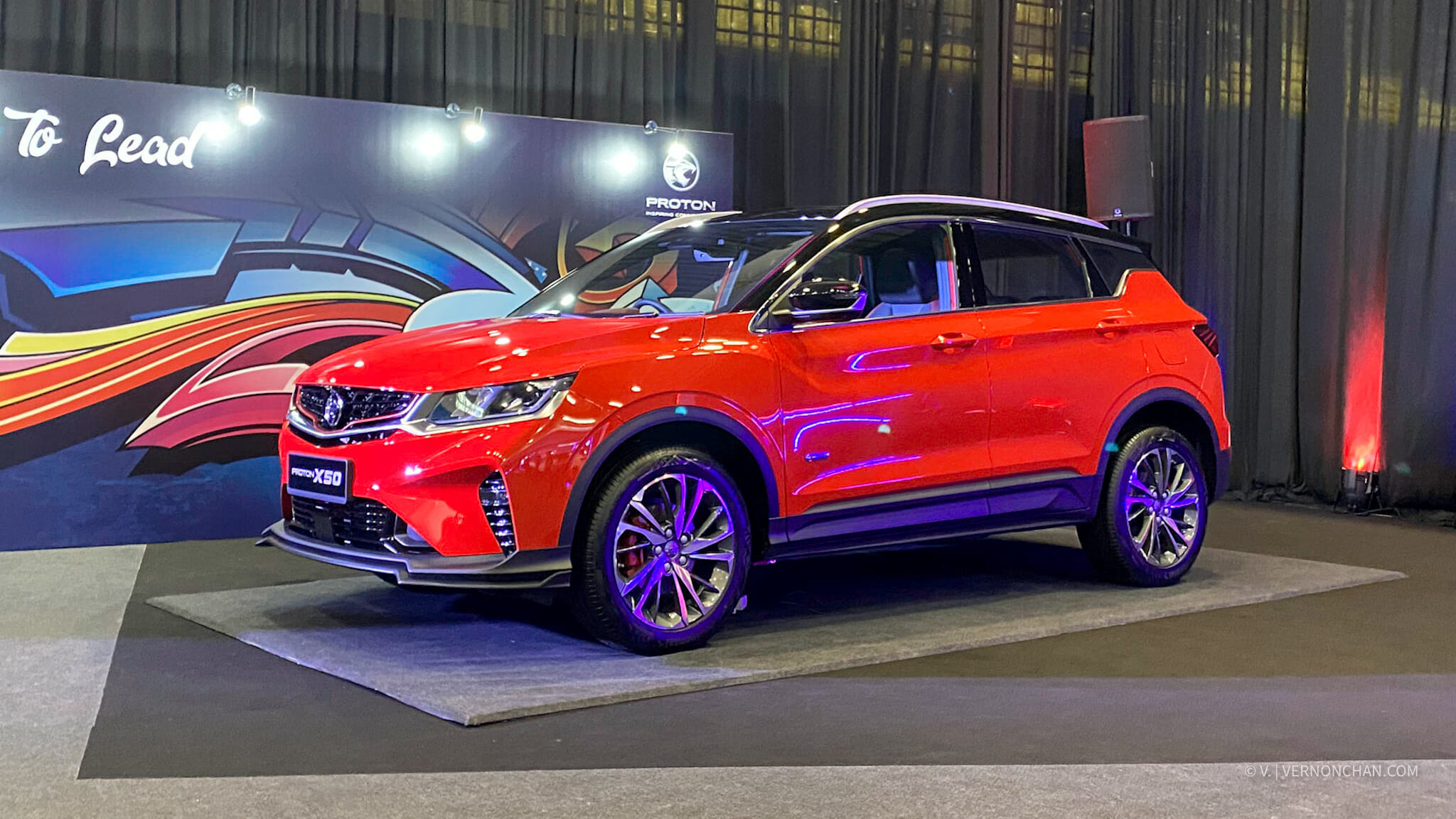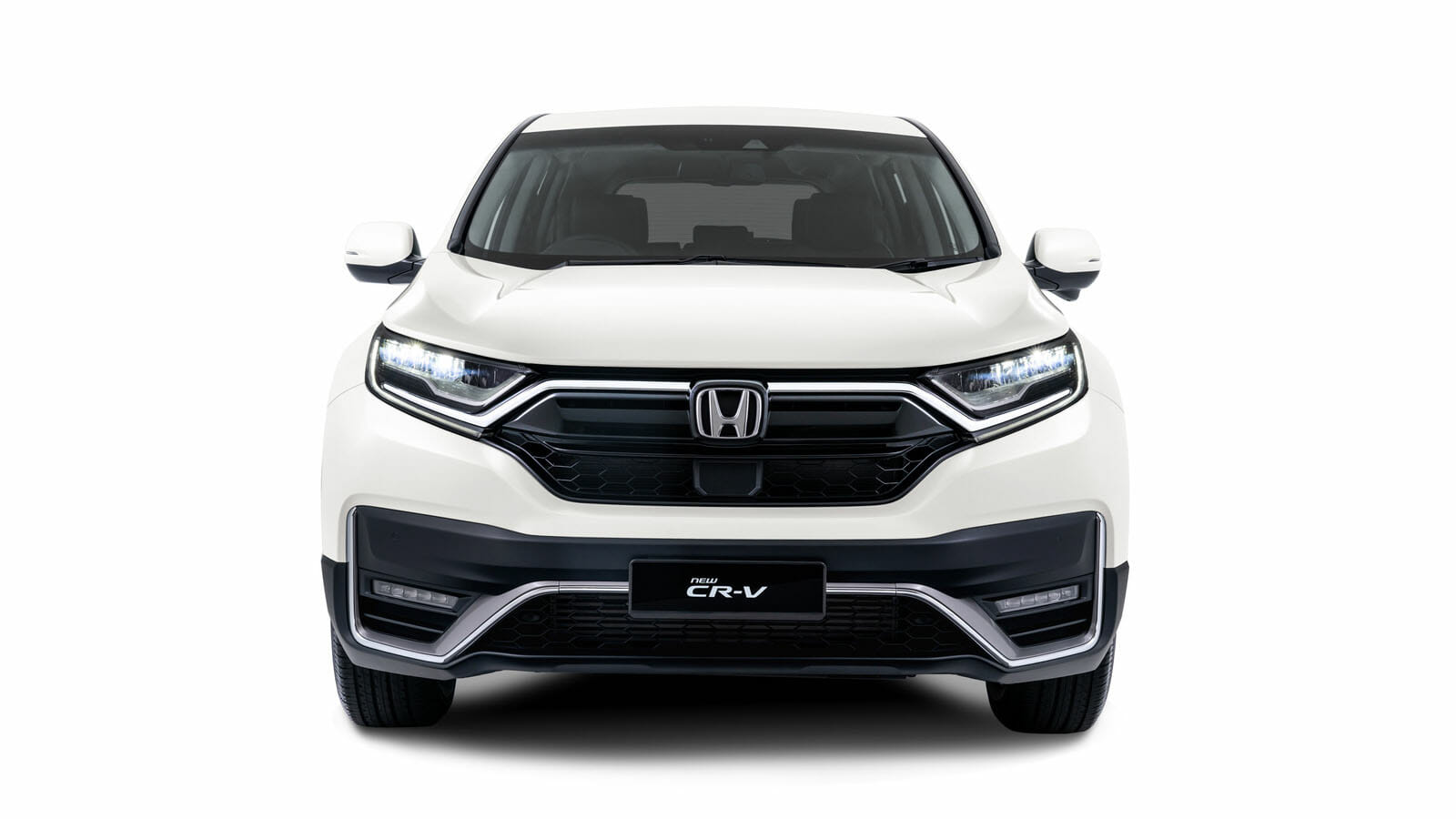Leading Southeast Asian ride-hailing company Grab in partnership with South Korean automaker Hyundai officially introduced GrabCar Elektrik Powered by Hyundai, a new electric vehicle (EV) ride-hailing service in Jakarta, on Monday.
The pilot service will be based out of Terminal 3, Soekarno-Hatta International Airport, with an initial deployment of 50 Hyundai Ioniq EV cars. Grab aims to deploy 500 cars in Indonesia by the year’s end.
Users of the new GrabCar Elektrik service will be charged 10 to 15 percent higher than the regular GrabCar service, revealed Grab Indonesia president director Ridzki Kramadibrata. This translates to IDR2,200 (USD0.16) to IDR2,750 per kilometre, instead of the typical IDR2,000-2,500 per kilometre.
Asked why the company has decided to launch the pilot at the airport, Ridzki replied that it is due to readily available charging stations as well as the diversity of consumers—both domestic and international.

Last December, Grab announced its pilot EV and EV ecosystem roadmap, partnering Hyundai for cars and Astra Honda Motor and Gesits for two-wheeled EV fleets.
“GrabCar Elektrik is a real form of our commitment to support the EV ecosystem in Indonesia, which we’ve delivered after getting US$2 billion investment from SoftBank last year. Moving forward, we want to be one of the active drivers who initiate collaborations to bring more efficient and greener transportation solutions and also strengthen our partnerships with Hyundai,” said Ridzki.
GrabCar Elektrik is the first initial EV initiative for public transportation in Indonesia this year. Last year, Indonesia’s largest taxi operator Blue Bird Group launch a fleet of e-taxis supplied by China’s BYD and Tesla.
Indonesia has big EV ambitions and wants to be the EV hub of Southeast Asia. Its Presidential Regulation No. 55/2019 (Fast-Track Programme for Battery-Powered Electric Vehicles for Road Transportation) is the primary piece of legislation which aims to accelerate the battery electric vehicles (BEV) programme for road transportation. The regulation covers, among other things, government incentives and local content requirements, as well as laying out the groundwork for future implementing regulations that will deal with the mass production of EVs.
The Indonesia government has targeted 2021-2022 for the local automotive industry to start mass-producing EVs.
The government is also committed to reducing greenhouse gases emission by up to 29 percent by 2030 and hopes EVs will it achieve this goal.
But perhaps, the biggest challenge is building the EV infrastructure, specifically charging stations.
To date, Jakarta has only three EV charging stations: at the South Jakarta headquarters of PLN (state electricity company); Grab’s central distribution unit in Central Jakarta; and Senayan City shopping mall in South Jakarta.
The Presidential Regulation 55/2019 stipulates that charging stations may be provided by state-owned enterprises or private companies. Currently, the government has mandated that PLN should procure charging stations, on the condition that the state electricity company may cooperate with private entities.
The GrabCar Elektrik Powered by Hyundai service is available now. You can request a ride from the Grab app.
How to request a GrabCar Elektrik Powered by Hyundai ride:
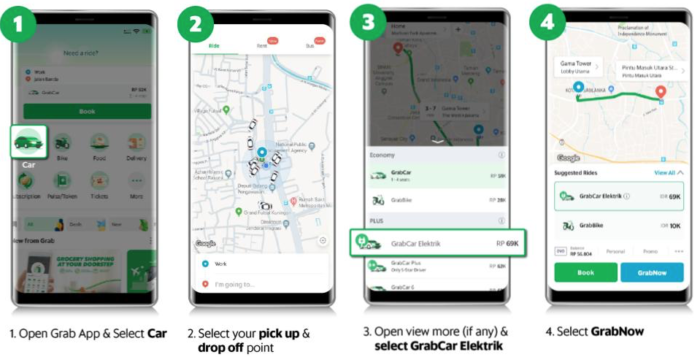
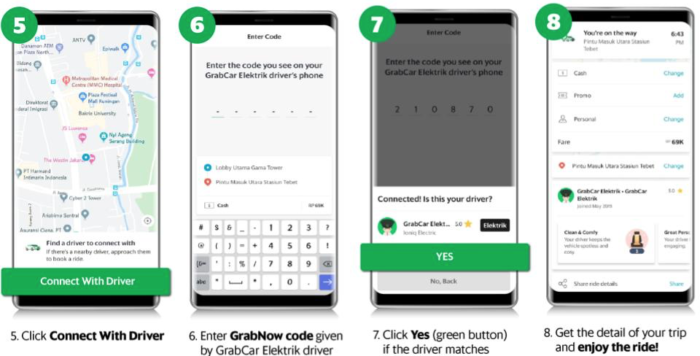
Source: Grab | The Jakarta Post | Techinasia


